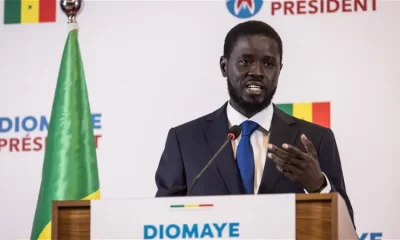Global Issues
Strict Adherence To COVID-19 Protocols: A Deprivation Of The Right To Life -By Ugonna Rosemary Afiadigwe
There are two basic approaches to the interpretation of the right to life; the traditional approach and liberal approach. Nigeria adopts a traditional approach to the right to life. Traditionally, the right to life is only actionable when there is an occurrence of death.

INTRODUCTION:
The Corona Virus Disease 2019 outbreak (referred to here as COVID-19) as an infectious disease was first identified in 2019 in Wuhan, China. The virus is spread through droplets of saliva or discharge from an infected person. Thus, on 11 March 2020, the World Health Organization (WHO) declared the virus a pandemic. Due to the deadly nature of the virus, protocols were put in place to curb the spread. One of such protocols is to avoid close contact with people who are sick. In strict adherence to such protocols, most healthcare facilities have resorted to turning many patients down while some are insisting on a COVID-19 test before commencing treatment on patients.
The strict adherence to COVID-19 protocols has led to an increase in the death rate from patients with other illnesses than from COVID-19 virus from within and outside the country. For instance, the Indian health ministry issued a directive, ensuring that healthcare facilities do not insist on a COVID-19 test before attending to patients who are critically ill.
Sadly, the Chairman of the Presidential Task Force on COVID-19 in Nigeria, Boss Mustapha at the briefing sometime in May 2020 made it known that Nigeria has recorded more deaths from hospitals refusing to attend to patients with other illnesses than from COVID-19.
It is on the above premise that this article is propagated to discuss the implication(s) of strict adherence to COVID-19 protocols in the Nigerian situation and how it has led to many lives being lost in fear of this dreaded virus.
CONSTITUTIONAL SUPREMACY
The 1999 constitution is the grundnorm of which all other laws, acts, protocols or guides are subject to. In the words of Mike Ozekhome, SAN, “the constitution is the supreme law of the land, the fons et origo; it is the nucleus and very birth certificate of Nigeria”.
The supremacy of the Constitution is evident in the provision of section 1(1) of the 1999 Constitution which is to the effect that the Constitution is supreme and its provisions is binding on all authorities and persons throughout Nigeria. The supremacy of the Constitution have been recognised in a plethora of cases. Section 1(3) also provides that any law that is inconsistent with the provisions of this Constitution, that the Constitution shall prevail, and that other law shall to the extent of the inconsistency be declared void.
In A.G Bendel State v. A.G. Federation & 22 others [1981] All NLR 85 SC, the Supreme Court upheld the supremacy of the Constitution. Similarly, in A.G Abia State v. A.G Federation (2006) 16 NWLR (party 1005)265 at 381, the Supreme Court, per Niki Tobi (of his blessed memory) upheld the supremacy of the Constitution when it held as follows:
“The Constitution of a nation is the fons et origo, not only of the jurisprudence but also of the legal system. In the Greek language, it is the alpha and omega. It is the barometer with which all statutes are measured. In line with the kingly position of the Constitution, all the three arms of government are slaves of the Constitution; not in the sense of servitude or bondage, but in the sense of total obeisance and loyalty to it. This is in recognition of the supremacy of the Constitution over and above every statute, be it an act of the National Assembly or a Law of the House of Assembly of a state”.
Thus, section 33(1) of the Constitution of the Federal Republic of Nigeria (CFRN), 1999, as amended, makes provision for right to life as follows: ‘Every person has a right to life, and no one shall be deprived intentionally of his life, save in execution of the sentence of a court in respect of criminal offence of which he has been found guilty in Nigeria’.
THE ENCOMPASSING NATURE OF RIGHT TO LIFE UNDER COMMON LAW JURISDICTION (CASE STUDY-INDIA)
Right to life as enshrined under the Constitution is encompassing as it includes other rights such as the right to livelihood, right to healthcare which also includes right to emergency medical care, right to live in a healthy environment etc. In most common law jurisdictions, these rights are enforceable even in the absence of death. These various rights that form part of the right to life are recognised in most human rights text; the Constitution of the Federal Republic of Nigeria (CFRN) and the constitution of other common law countries such as India.
The problem lies in the fact that under the CFRN, these other rights that form part of right to life are usually non- justiciable. In the words of Amos O. Enabulele, ‘the non-justiciable nature of these other rights has made the inclusive interpretation of the right to life inevitable’. In Paschim Banag Khet Samity v. State of West Bengal [1986]4 SCC 37, right to emergency medical care was held enforceable as a right to life under Article 21 of the Constitution of India. The court in its ratio decidendi opined that the right to emergency medical care formed a core component of the right to health which in turn was recognised as forming an integral part of the right to life.
What the Indian Court has done is to ensure that right to life is given an inclusive construction in line with other rights recognised under its Constitution to prevent a situation that may give rise to wasteful deaths. When viewed in this approach, the right to life imposes a positive duty on the government to prevent a state of affairs that can give rise to a deprivation of life. This is in contradistinction to what is obtainable in Nigeria where the right to life is only enforceable upon the occurrence of death and compensation ordered to the family of the deceased.
In essence, the attitude of some hospitals in Nigeria in rejecting patients or insisting that patients who are critically ill undergoing COVID-19 test before treatment can be administered to them amounts to a deprivation of right to emergency medical care which is enforceable as the right to life in most common law jurisdictions like India as seen in the above -cited case.
WHEN CAN RIGHT TO LIFE BE ENFORCED IN NIGERIA?
There are two basic approaches to the interpretation of the right to life; the traditional approach and liberal approach. Nigeria adopts a traditional approach to the right to life. Traditionally, the right to life is only actionable when there is an occurrence of death.
To that effect, where death occurs due to neglect or deprivation of the right to life, the deceased family can maintain an action in court and the court can order compensation to the deceased family. See the case of Nasiru Bello v. A.G Oyo State [1986]5 NWLR (pt. 45) 828. On the other hand, going by the liberal approach, the right to life is not breached only when there is an occurrence of death but also when life is threatened. See the case of Makaratzis v. Greece (Application No. 50385/99)
By the traditional approach, other rights forming part of the right to life such as the right to medical care, right to healthy environment etc are not enforceable and the reason is because the CFRN has made these rights non-justiciable.
It is however interesting to note that in cases of Emergency, Section 20 of the National Health Act, 2014 prohibits healthcare facilities from refusing a person an Emergency treatment for any reason. If a healthcare facility does, it is liable for fine of 100, 000.00 naira or imprisonment not exceeding 6months or both. This indeed is heart-warming.
CONCLUSION
Life is precious and as such, the denial of means of sustaining life is tantamount to a deprivation of the right to life. Patients who have been neglected and whose lives were claimed by other illnesses due to lack of attention owing to the fear of COVID-19 from hospital staff can get justice by virtue of section 33(1) of the CFRN.
Put differently, where there is established case of deprivation of the right to life due to hospitals insisting on patients who are critically ill to undergo COVID-19 test before they can be treated, the deceased family can maintain an action in court against the hospital authority. This is even so since these hospitals are trying to comply with COVID-19 protocols. These protocols are not in any way superior to the Provisions of the Constitution of the Federal Republic of Nigeria.
RECOMMENDATION
In other to balance the conflicting rights to life of patients and hospital staff/health workers, government should ensure that hospital staff/ health workers are safe while attending to patients yet to be tested for COVID-19, the use of personal protective equipment (PPE) in all hospitals whether private or public should be made compulsory.
Ministry of health should direct all hospitals not to insist on COVID-19 test in cases of emergency. Nigerians who are deprived of such medical care or attention should not also hesitate seeking redress under The National Health Act accordingly.
The right to life should be broadly interpreted and the rights that are regarded as forming part of right to life should be made justiciable under the CFRN.
Nigerian courts are encouraged to adopt a more liberal and expansive approach in the interpretation of the right to life. Persons seeking to enforce the right to emergency medical care can approach the court under section 20 of the National Health Act, 2014 as such deprivation of the right to emergency medical care are enforceable under the act as constituting medical negligence. The author can be reached via 07065469660 or rosemaryafiadigwe@yahoo.com
REFERENCES
1. Constitution of the Federal Republic of Nigeria, 1999 (as Amended)
2. National Health Act, 2014
3. Amos OE, ‘The Right to Life or the Right to Compensation upon Death: Perspective on an Inclusive understanding of the Constitutional right to Life in Nigeria [2014] (3) (1) Afe Babalola University: Journal of Sustainable Development Law and Policy.
4. Mike Ozekhome, SAN, President Buhari’s Shutdown of FCT, Lagos and Ogun States: The Legal and Constitutional Issues Arising Therefrom (Part 1) https://thenigerialawyer.com/president-buhari-shutdown-of-fct-lagos-and-ogun-states-the-legal-and-constitutional-issues-arising-therefrom-part-1-by-mike-ozokhome-san/



















